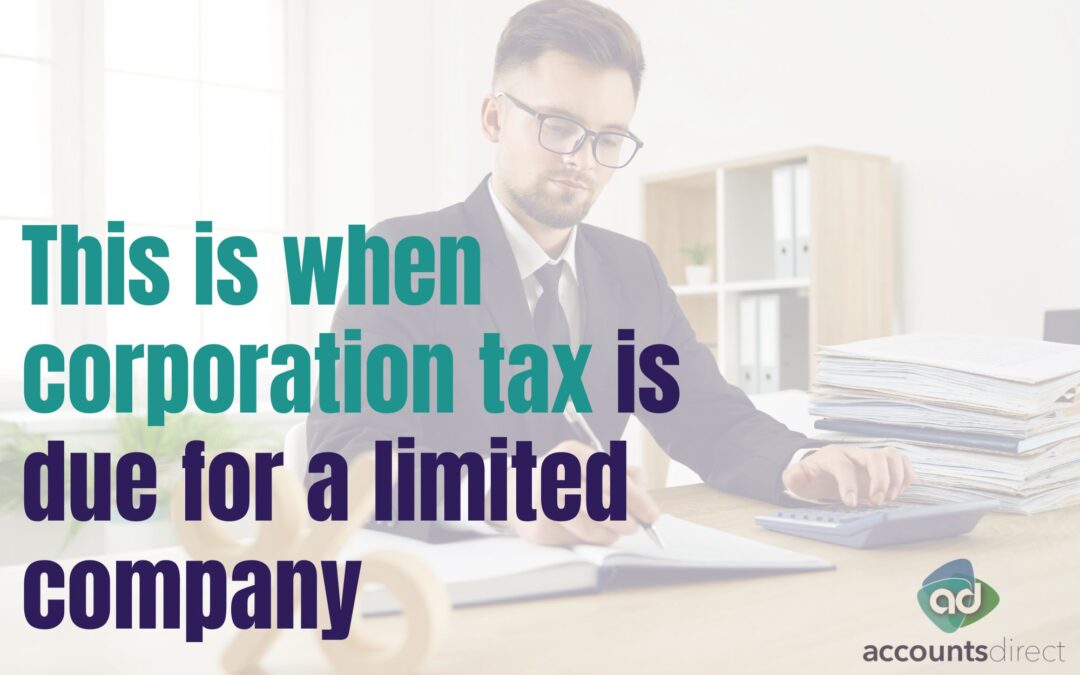Running a limited company comes with its share of responsibilities, and one of the crucial ones is understanding and paying corporation tax. So when is limited company corporation tax due?
In this article, we highlight the main corporation tax dates and deadlines to help you meet your obligations on time, as well as how to prepare for year-end. Let’s break it down.
Understanding limited company corporation tax
Limited company corporation tax is levied on all your income after deducting allowable expenses and tax breaks. You’ll pay a different corporation tax rate depending on your business size.
Once you’re familiar with the essentials of this tax, it becomes just another part of your business routine.
Key dates and deadlines
Accounting period: Central to corporation tax, the accounting period usually aligns with a company’s financial year. This period determines the duration you’ll compute your profits and losses for tax purposes.
While your accounting period will usually span 12 months, it can vary in certain circumstances, including in the first year you set up your company. It may also be shorter if you change your company’s financial year-end.
Payment deadline: The deadline for paying corporation tax is nine months and one day after the end of your accounting period. So, if your company’s accounting period ended on 31 March 2023, you must file your return and pay the balance by 1 January 2024.
However, it’s worth noting that larger companies with taxable profits exceeding £1.5 million are usually required to pay corporation tax in instalments.
Filing the return: Your company tax return gives HMRC insight into your company’s financial dealings over the financial year. It details your income, expenses, tax reliefs and any tax due.
Being punctual with your return is crucial. Missing the deadline by just one day can result in an automatic £100 penalty, which can grow significantly if you delay filing or payment further.
How to prepare for corporation tax
Implement good record keeping practices
The key to an accurate corporation tax return is good record keeping. You’ll need to record every financial transaction your company makes, whether income or expense.
Maintaining good bookkeeping practices throughout the year ensures you pay the right amount of tax and can also reduce the time you need to spend calculating your returns.
Submission process
- Know your accounting period: As discussed earlier, your company’s accounting usually spans the same 12 months as your financial year – but this isn’t always the case. For example, if your company hasn’t traded for a full year or you change your year-end, your accounting period may differ.
- Calculate your taxable profits: Calculate your company’s income and subtract any allowable expenses and tax reliefs. The resulting figure is your taxable profit, which you must pay corporation tax on.
- Filing your company tax return (CT600): In most cases, you’ll need to file your tax return on the Government website. You can do this yourself, but hiring an accountant can make the process much easier and less time-consuming. It’s not just about declaring your profit or loss – the CT600 form also requires details on any reliefs or capital allowances you claim.
- Paying the tax: Generally speaking, tax must be paid nine months and one day after the end of your accounting period. Most companies pay online via a bank transfer or direct debit.
Summary
Managing and understanding limited company corporation tax might seem daunting, but it’s easy to manage with the proper guidance and accounting habits in place.
Always remember to keep an eye on deadlines, understand your liabilities and take advantage of the tax reliefs available. And if ever in doubt, a chat with your accountant can set things straight!
Our comprehensive year-end accounts service is here to help you prepare, file and pay corporation tax on your profits. With our support, you’ll maximise deductions and expenses, save time and keep on the right side of HMRC.
Get in touch with our friendly team to discuss your limited company corporation tax liabilities.

